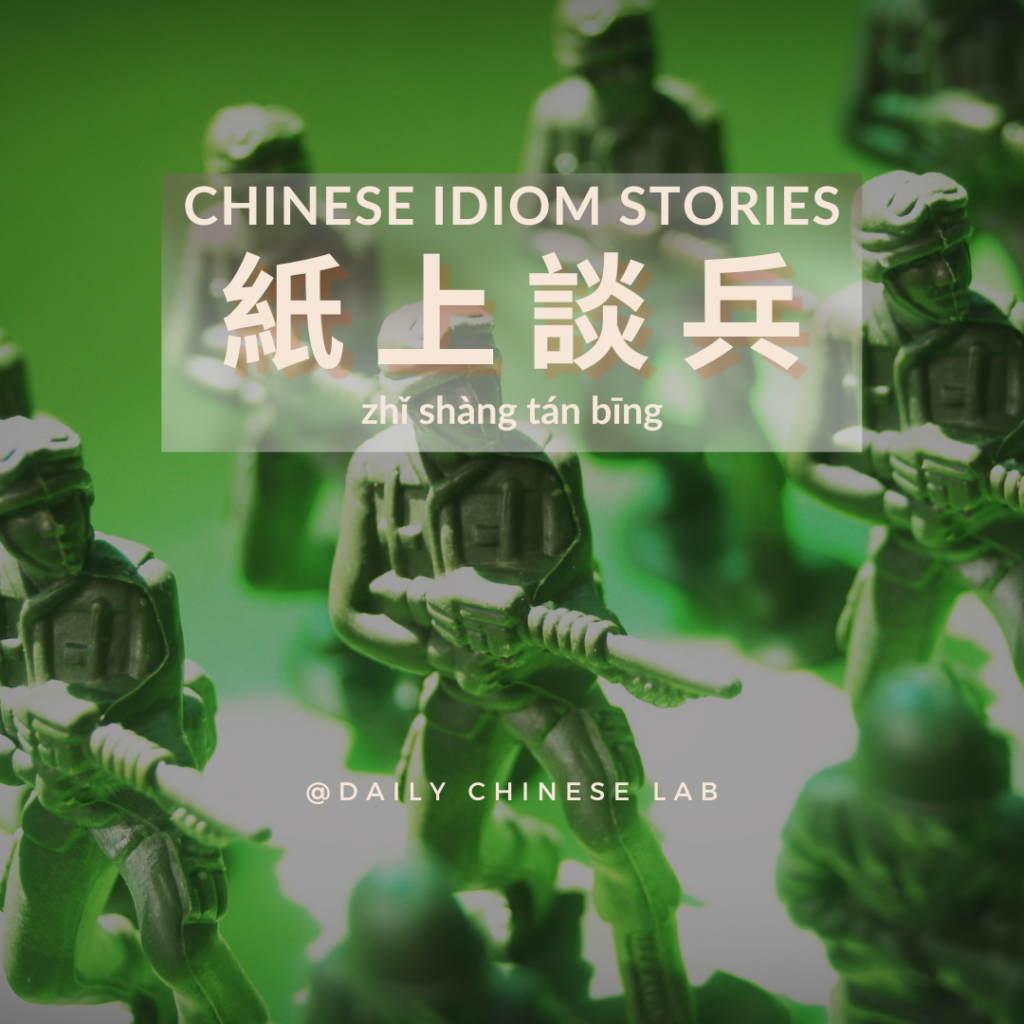Idiom: 紙上談兵 (zhǐ shàng tán bīng)
Literal Meaning: “Discussing military strategy on paper.”
Explanation: 紙上談兵 (zhǐ shàng tán bīng) Refers to someone who is all talk and no action, or theories that look good on paper but fail in practice.
Chinese Idiom Stories
During the Warring States period in China, a general named Zhao Kuo replaced his father, Zhao She, as commander of the Zhao army. Zhao Kuo was known for his vast knowledge of military strategy, which he had thoroughly studied in books.
However, Zhao Kuo had no actual battlefield experience. When he led the Zhao army against the Qin state, he strictly followed theoretical strategies without adapting to the reality of the battlefield. The Qin army exploited his rigidity, resulting in a devastating defeat for the Zhao army.
This idiom warns against relying solely on theoretical knowledge without practical experience.
Idiom Example Sentences
- 他對經營公司很有想法,但只是紙上談兵,真正做起來卻不行。
- He has many ideas about running a company, but they’re just theories on paper; he can’t execute them in practice.
- Tā duì jīngyíng gōngsī hěn yǒu xiǎngfǎ, dàn zhǐshì zhǐ shàng tán bīng, zhēnzhèng zuò qǐlái què bùxíng.
- 如果不參加實踐,學習計畫永遠只是紙上談兵。
- Without practical participation, study plans will always remain mere theories.
- Rúguǒ bù cānjiā shíjiàn, xuéxí jìhuà yǒngyuǎn zhǐshì zhǐ shàng tán bīng.
Practice Exercise
- Why did Zhao Kuo fail as a general?
- How does 紙上談兵 apply to situations in everyday life?
- Write a sentence using 紙上談兵 to describe someone whose ideas look good in theory but fail in practice.

Multiple Choice Questions
What does 紙上談兵 criticize?
A) Overthinking without taking action.
B) Learning strategies from others.
C) Ignoring theoretical knowledge.
D) Practicing without preparation.
(Answer: A)








